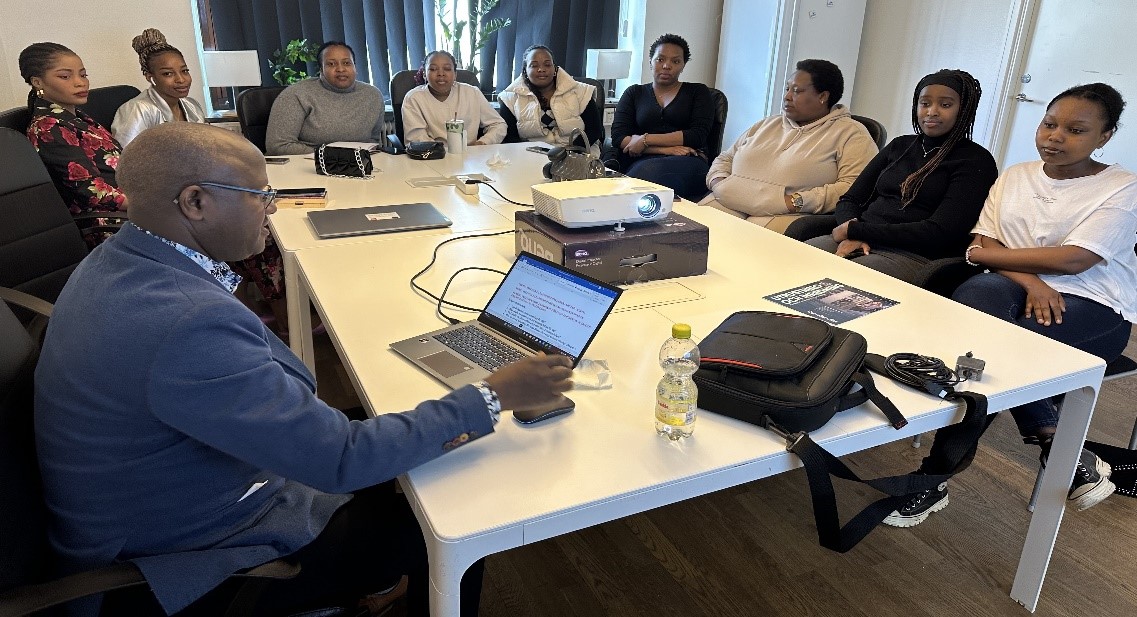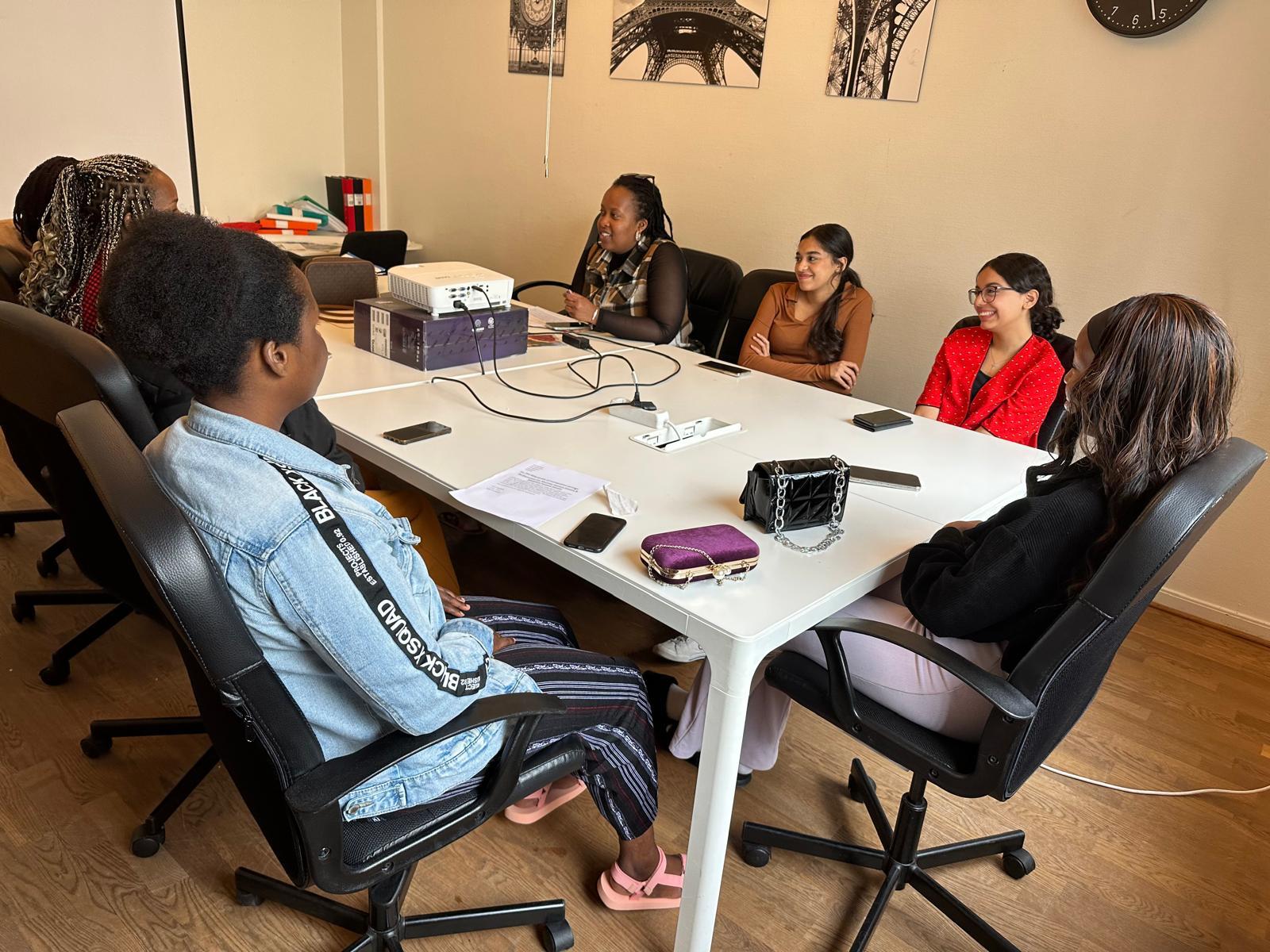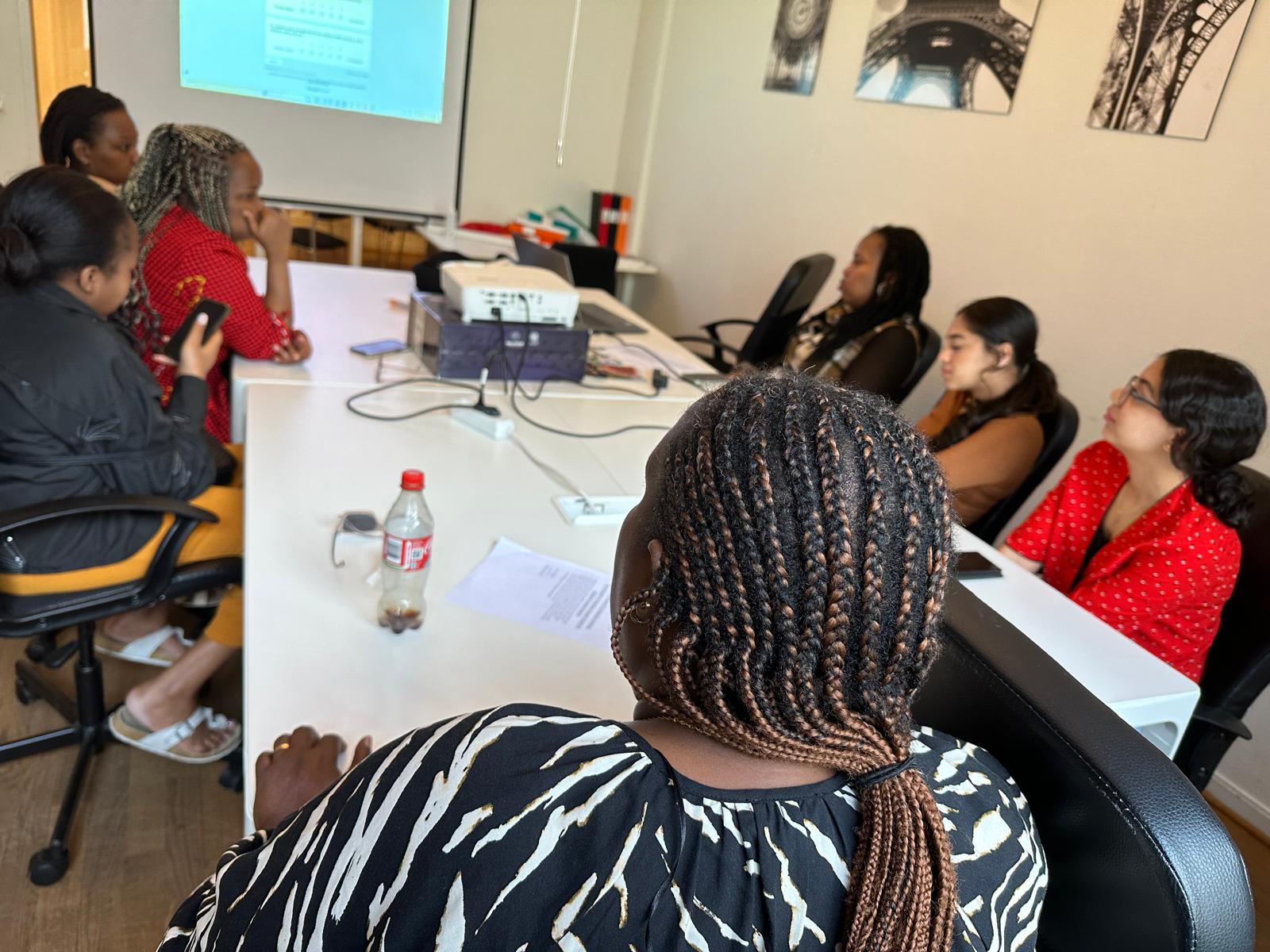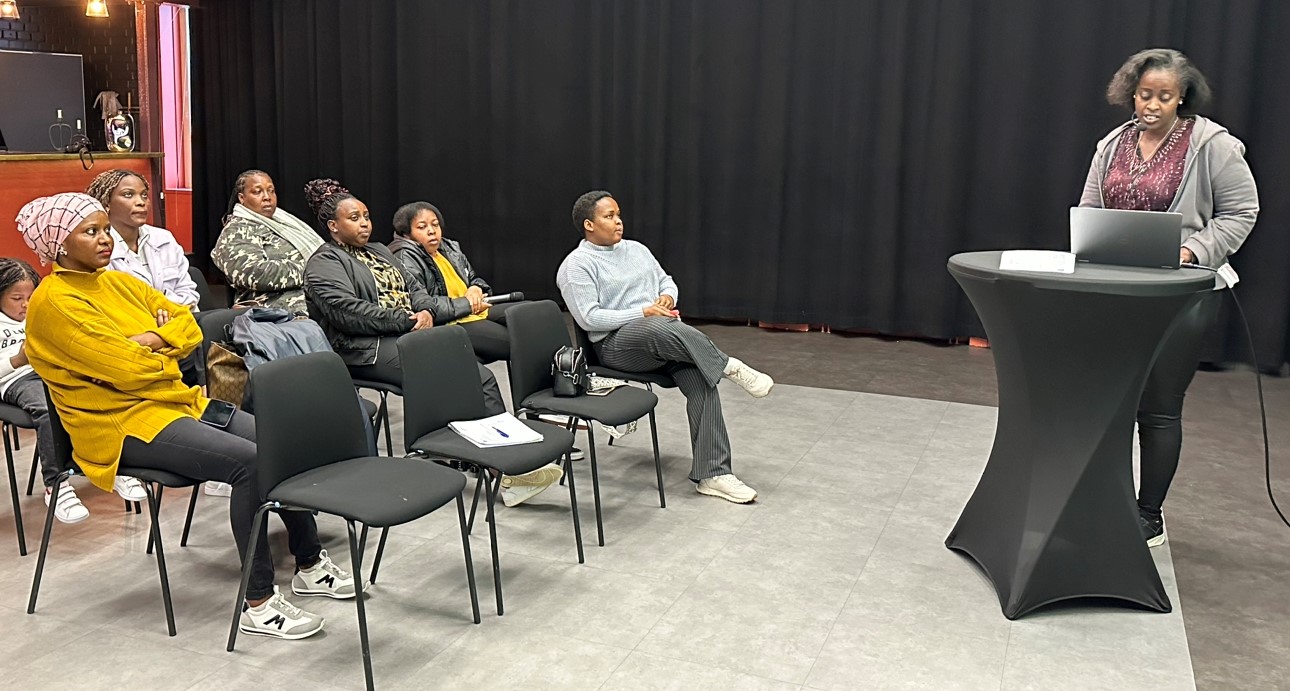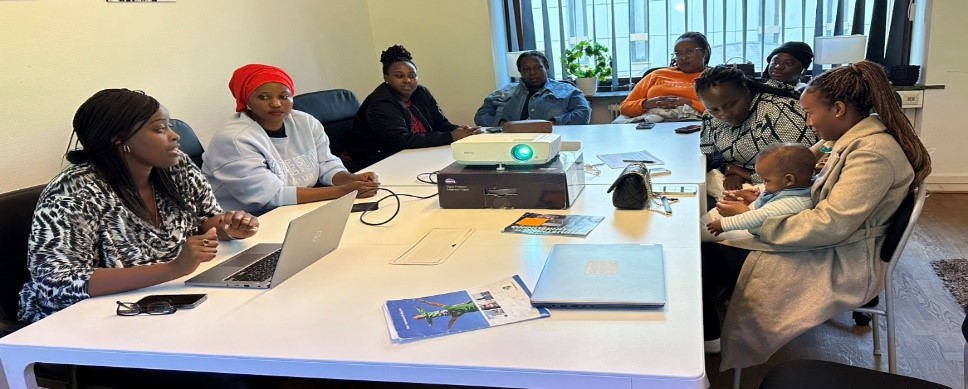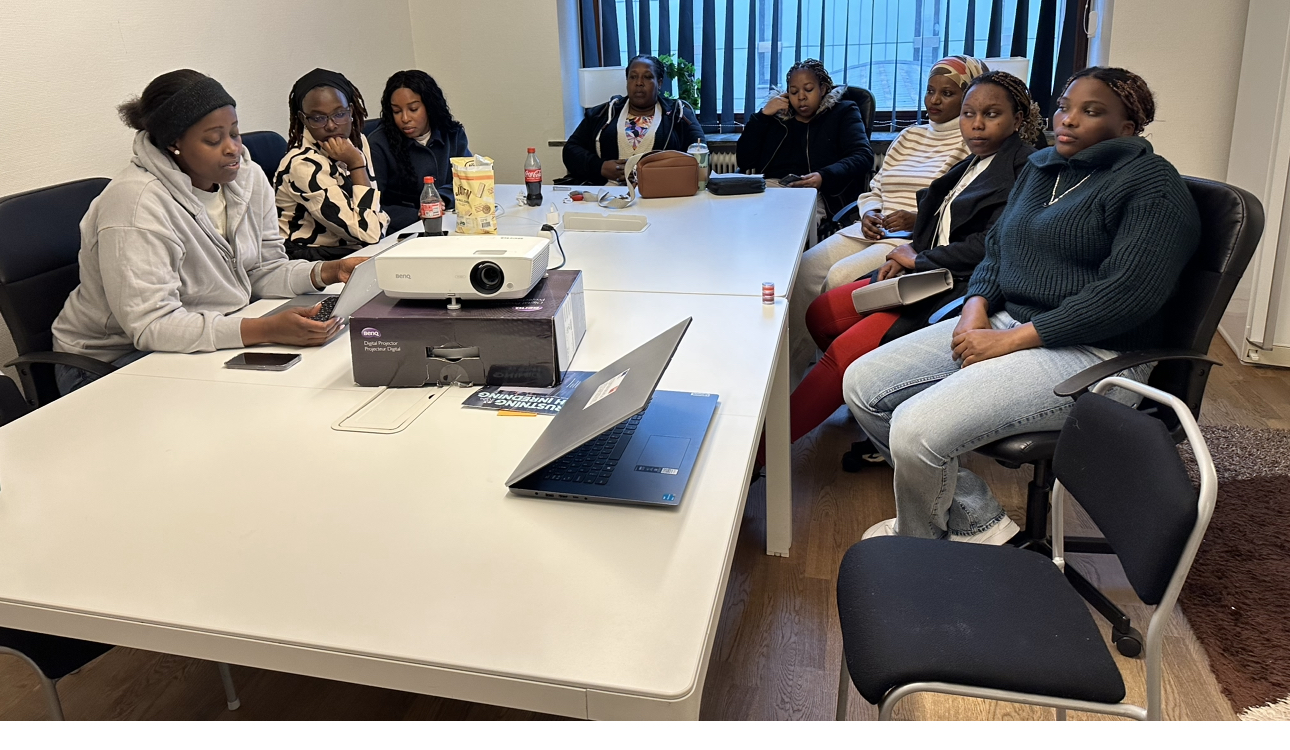POLITIK -HER : SCHOOL OF POLITICS FOR YOUNG WOMEN
Project :KA2 - Cooperation partnerships in youth -KA220-YOU-E76CAFAA D
Project idea
The equal representation and influence of women and men in political life, at all levels of governance, is a prerequisite for a democratic society. Women’s full and substantive political participation, both as citizens and in public office, is essential for good governance and policy making. While some progress has been made over the last ten years, women are still under-represented and the situation in local and regional government is of particular concern. In order to ensure a balanced participation of women and men in political and public decision-making, efforts must be redoubled to recruit more women – of all ages and backgrounds – into politics. This requires raising awareness about gender equality, tackling harmful gender stereotypes and championing the benefits of gender-balanced leadership.
Given this context, the project seeks to embrace the complex relationship between gender and leadership as its focus, as it is set to support young women in selected European countries to develop trailblazing qualities and push them in new directions as they explore leadership through a feminist lens.
A Kick - off meeting
A Kick - off meeting took place in Bucharest, Romania in 30 & 31 january 2024.
POLITIK -HER is an Erasmus+ project and its goal is for all young women to be aware of their own capabilities, and to become agents of change in their communities, by providing them with a supportive intercultural, inclusive and sustainable learning environment and by giving them the opportunity to tackle a gender equality issue directly. The project seeks to involve a variety of stakeholders: namely, young women aged 16-22 years old, project partners and associates, political and economic leaders, individual experts involved as mentors and coaches (both internal and external to the project’s partners) and diverse stakeholders (both public and private, both profit and no-profit).
Women Inclusive leadership
Promoting gender diversity and inclusion in the workplace is the right thing to do and makes good business sense. Organizations can drive innovation, improve decision-making, and achieve sustainable growth by creating opportunities for women to succeed in leadership roles. Together, we can break down barriers and create a more equitable and inclusive future for all.
We organized a transformative dialogue on 20th April 2024 to promote women's inclusion leadership. This round table took place in Jönköping, C/O ETU AB, Västra Storgatan 6, in which participated 1o migrant background women.
click here to read more
Gender Equality
Gender equality is fundamental to the achievement of human rights and is an aspiration that benefits all of society, including girls and women. The universal advantages of gender equality have been well-documented, and several international frameworks have affirmed its centrality to human rights and sustainable development. The Beijing Declaration and Platform for Action, for example, unanimously adopted by 189 countries in 1995 and still the strongest global consensus for advancing and protecting girls' and women’s equality and justice, recognizes that persistent inequalities pose “serious consequences for the well-being of all people.”
On 6th June, we organized a transformative dialogue on the theme: Start of the art of gender equality in Sweden. This round-table took place in Jönköping, C/o Västra Storgatan 6, in which participated 9 migrant backgrounds were born.
click here to read more
EMPOWER YOUNG WOMEN ENTREPRENEURS
Tips for becoming a female entrepreneur
Becoming a female entrepreneur can be an exciting and rewarding journey, but it can also be a challenge. However, with the right advice and attitude, you can start your business and become a successful businesswoman.
First of all, it is important to believe in yourself and not let stereotypes or prejudices hold you back. Women can be just as competent and effective as men as entrepreneurs. It is therefore important to have confidence in yourself and your ideas, even if they are a little daring.
Next, it is important to carefully assess your target market and understand the needs of your potential customers. This will allow you to effectively target your product or service and define appropriate marketing strategies
.
It is also important to have solid financial planning. This means establishing a budget for your business, seeking funding, and effectively managing your finances to ensure your business grows.
It is important to surround yourself with the right people. Having a network of mentors, supporters, competent collaborators, and employees can be very useful in overcoming potential challenges and progressing in life as an entrepreneur.
Finally, it is important to adapt to changes and be able to adapt to market developments. Successful businesses are those that can adapt to changes and adapt to market trends
What profile should you have to become a female entrepreneur?
There is no standard profile for becoming a female entrepreneur. It is important to emphasize that anyone can become an entrepreneur, regardless of their age, training, professional experience, or cultural background.
However, certain qualities and skills can be useful to succeed as an entrepreneur.
Here are some of the qualities and skills that can be useful in becoming a female entrepreneur:
1. Leadership: Entrepreneurs must be leaders, capable of making decisions, leading a team, and motivating others.
2. Vision: Entrepreneurs must be able to see opportunities and seize them to create value for their business and for their customers.
3. Risk: Entrepreneurs must be willing to take risks and accept uncertainty to succeed.
4. Flexibility: Entrepreneurs must be able to quickly adapt to changes and unexpected events to keep their business moving.
5. Perseverance: Entrepreneurs must be able to persevere in the face of obstacles and challenges to achieve their long-term goals.
6. Innovation: Entrepreneurs must be creative and innovative to stand out from the competition.
7. Financially: Entrepreneurs must be able to effectively manage their budget and cash flow to ensure the growth of their business.
Finding your balance between family and professional life
Finding a balance between family and professional life can be a huge challenge for women entrepreneurs. However, there are several strategies that can help you effectively balance the demands of your professional and personal lives.
Here are some of the qualities and skills that can be useful in becoming a female entrepreneur:
1. Set clear boundaries: It is important to clearly define the boundaries between your professional life and your personal life. This may include setting defined work hours, establishing limits on the use of mobile devices and emails. You can also set availability limits for calls and meetings outside of work hours.
2. Prioritize: It is important to prioritize tasks and obligations to ensure that the most important things are accomplished first. This may include planning time for family activities and friends, as well as leisure and relaxation activities.
3. Use time management tools: There are many online tools and software that can help you plan and manage your time effectively. These tools can include calendar apps, task management apps, and project management tools.
4. Ask for help: It is important not to hesitate to ask for help from family, friends and colleagues to help you manage daily tasks. This may include asking for help with household chores or child care.
5. Take care of yourself: Finally, it is important to take care of yourself to ensure that you are physically and mentally fit, to handle the demands of your professional life and your personal life.
Get closer to networks of women entrepreneurs
Connecting with networks of women entrepreneurs is an excellent way to benefit from the experience and support of those who have already succeeded in the world of entrepreneurship.
There are several benefits to surrounding yourself with a community of entrepreneurs and professionals who can help you grow your business and grow as an entrepreneur:
1. Sharing experiences: Surrounding yourself with people with similar experience to yours allows you to share stories; advice and tips that can help you navigate the challenges of entrepreneurship. It is also important to listen to the mistakes of others to avoid them.
2. Networking: Surrounding yourself with people in the same field as you gives you the opportunity to create professional connections and develop business partnerships that can help grow your business.
3. Coaching: Surrounding yourself with people with more experience than you can help you receive advice and guidance that can help you avoid common mistakes and make informed decisions for your business.
4. Support: Surrounding yourself with people who support you morally and professionally can help you get through difficult times and maintain your motivation to succeed.
5. Inspiration: Surrounding yourself with people who have succeeded in the same field as you can give you inspiration and show you what is possible as an entrepreneur.
YOUNG WOMEN’S ENTREPRENEURSHIP
In recent years, the world of entrepreneurship has experienced exponential growth, and women are not left out. Despite persistent obstacles and prejudices, more and more women are embarking on the adventure of creating their own businesses and succeeding in achieving their goals and developing themselves.
This theme on female entrepreneurship aims to explore women's place in the world of entrepreneurship, highlighting the challenges they encounter and the successes that inspire other women to follow their example.
In fact, female entrepreneurship is a crucial issue for society's economic and social development. Women entrepreneurs contribute to job creation, economic growth, and innovation, but unfortunately, there are fewer of them than men in most countries.
.
More and more women are embarking on the adventure of entrepreneurship, despite persistent obstacles and prejudices. According to the latest report from the Global Entrepreneurship Monitor (GEM, 2017), the gap between men and women entrepreneurs is present in all Western countries.
The motivations of women entrepreneurs are partly different from those of men. Women are motivated by a desire for autonomy, a taste for success, a desire for job satisfaction and other non-economic rewards, but they seem to be more motivated by a desire for independence and emancipation.
Women entrepreneurs can encounter many obstacles in their journey, including access to funding and markets. According to the Girls in Tech report in 2016, only 15% of startups that raised funds in 2015 were founded or co-founded by women and represented only 10% of the amounts raised. Women have less access to financial resources partly because they may often be less taken seriously by those they interact with.
Furthermore, the research shows that women are less confident, while men tend to be overconfident. This lack of self-confidence can result in a feeling of lack of legitimacy for women entrepreneurs, thus hindering their entrepreneurial ambitions.
In conclusion, it is clear that women continue to face obstacles in their entrepreneurial journey, particularly in terms of access to funding and markets, recognition of their skills, self-confidence, and risk-taking. These barriers are often linked to gender stereotypes and discrimination, which can hinder women's ambitions and prevent them from reaching their full potential as entrepreneurs.
GENDER ROLES AND GENDER INEQUALITIES
Gender Roles in Occupations and Career Aspirations
Gender roles significantly influence career aspirations, often steering individuals toward professions traditionally associated with their gender. Societal expectations can limit opportunities, with women being underrepresented in leadership roles and men in caregiving professions
Gender Roles
Gender roles are the social and cultural expectations for how people should behave according to their assigned gender. These roles shape the behaviors, attitudes and responsibilities considered appropriate for men and women.
Gender roles evolve over time but still trend toward traditional and stereotypical notions of masculinity and femininity. Gender roles can limit and restrict people’s choices and prospects based on their gender, perpetuating gender inequality.
Gender Stereotypes
Gender stereotypes are beliefs or assumptions about the characteristics, traits, behaviors, and roles of people based on their gender. Gender norms create and reinforce these stereotypes, which can lead to biased judgments and discrimination against individuals who do not conform to them. Gender stereotypes can be positive or negative, but they tend to fit rigid ideas of masculinity and femininity.
Gender inequality meaning
Gender inequality is the condition in which access to rights, resources, and opportunities is unequally distributed between genders, including men, women, boys, girls, and individuals of other gender identities.
This disparity stems from deeply ingrained social norms and power structures that perpetuate discrimination and the unequal distribution of power and privileges.
Gender inequality exacerbates the challenges faced by those who are already marginalized, making it a critical issue to address to achieve social justice and equality.
What is gender bias?
Gender bias is the preferential treatment and prejudiced assumptions directed towards individuals based on their gender.
This bias manifests through entrenched social norms and power dynamics that favor certain genders over others, influencing the distribution of resources, roles, and responsibilities within society.
Gender bias not only reinforces gender stereotypes but also significantly hampers efforts towards achieving gender equality by limiting the opportunities available to certain genders and affecting their ability to fully participate in and benefit from societal processes.
Gender inequality solutions
To stop gender inequality, we must:
1. Support gender-transformative education and leadership roles for young women;
2. Invest in girls’ participation in decision-making;
3. Tackle the causes of gender-based violence;
4. Bring an end to child marriage and early pregnancy so girls can fulfill their potential;
5. Invest in girls’ economic empowerment through skills training and inclusive, quality education.



